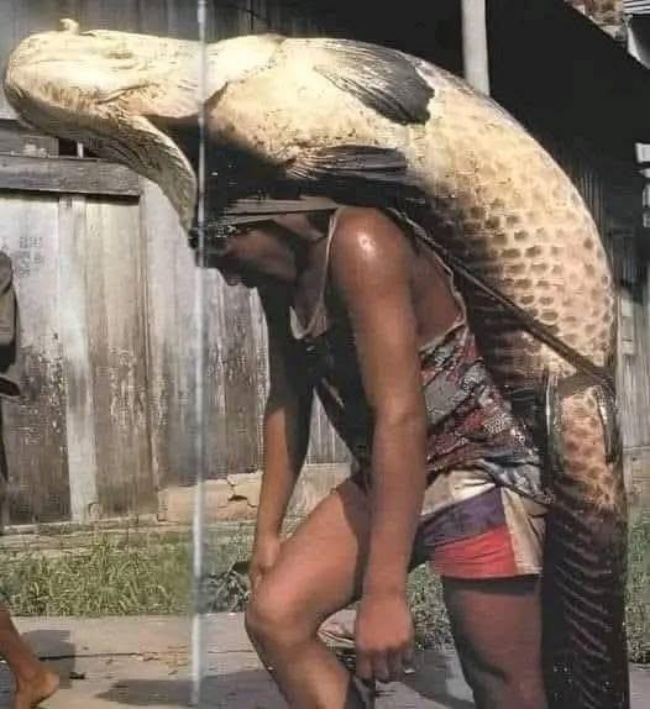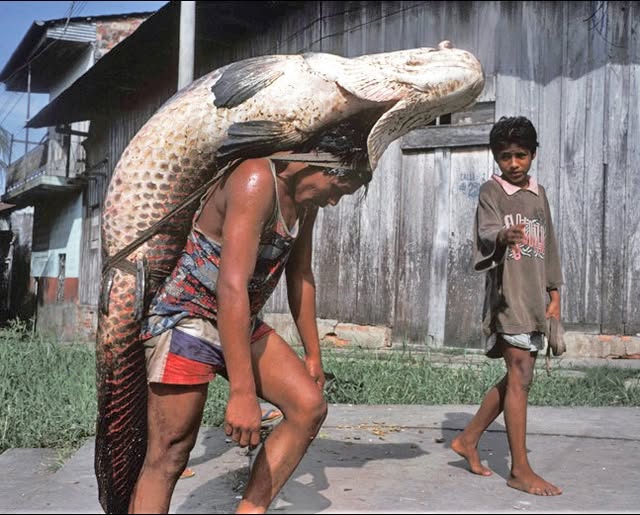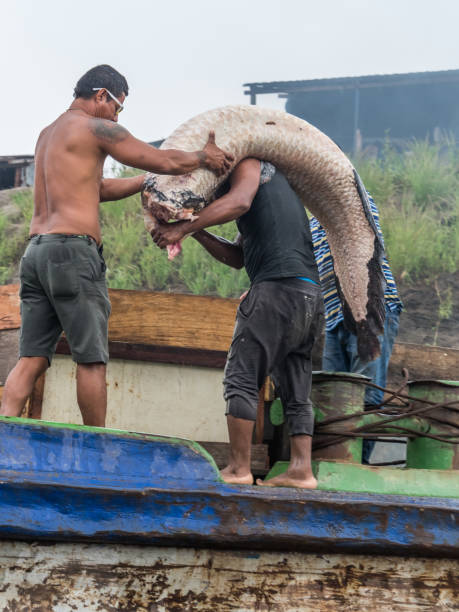he Legendary Giant of the Amazon The Timeless Story of the Mighty Arapaima

In 1993, a striking photograph captured worldwide attention — a fisherman from Iquitos, Peru, carrying a massive paiche, also known as the arapaima or pirarucu. The image remains one of the most unforgettable depictions of life along the Amazon River, showcasing one of the largest freshwater fish species on the planet.
The arapaima is a true giant of the Amazon Basin. Capable of growing over three meters in length and weighing more than 400 pounds, it has long been a source of awe and fascination for both scientists and local communities. Yet its size is only part of what makes it extraordinary. This ancient fish, which has existed for millions of years, possesses a unique adaptation — it can breathe air.

Unlike most fish, the arapaima must rise to the surface every 15 to 20 minutes to take in oxygen. When threatened or resting, it can hold its breath for up to 40 minutes. This adaptation allows it to survive in oxygen-poor waters, such as flooded forests and swamps, where few other large species can thrive.
In the Amazon ecosystem, the arapaima plays a vital ecological role. As a top predator, it helps maintain balance by feeding on smaller fish and other aquatic creatures. Its presence supports the health of the rivers and wetlands that countless species depend on.

However, this remarkable creature now faces significant challenges. Decades of overfishing, along with habitat loss from deforestation and water pollution, have reduced its numbers in many regions. Conservation programs are underway to protect the species, focusing on sustainable fishing practices and habitat preservation to ensure its survival for future generations.
For the people of the Amazon, the arapaima is more than a fish — it is a symbol of strength, resilience, and the deep connection between humans and the river that sustains them. The 1993 photograph from Iquitos stands as a reminder of both the natural wonders of the Amazon and the urgent need to protect them before they, too, become only memories of the past.











